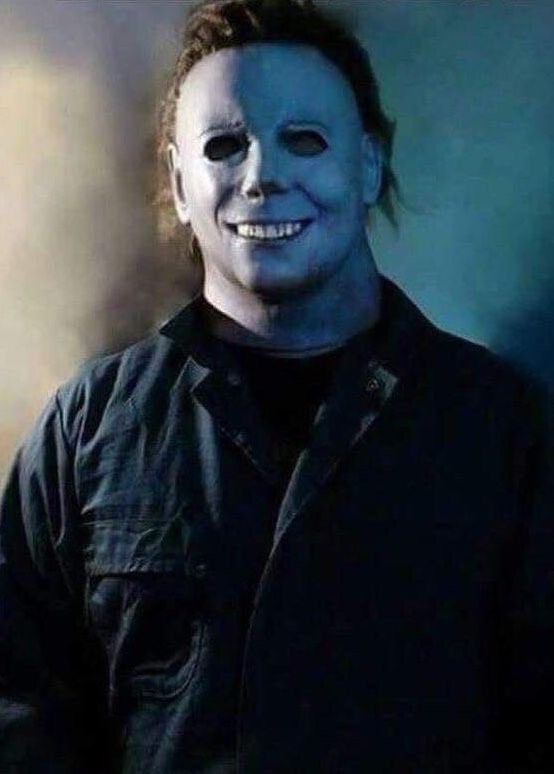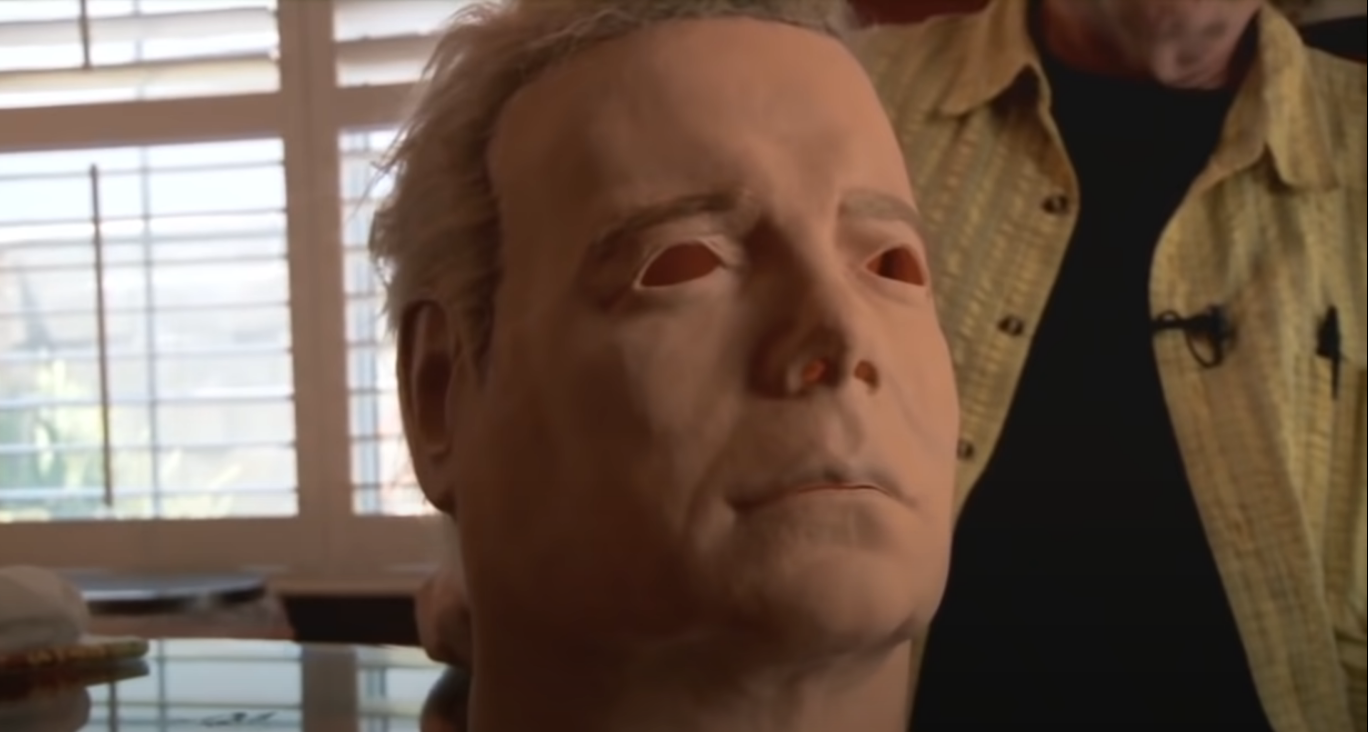Was Michael Myers Based On A Real Person? Unveiling The Truth Behind The Iconic Horror Character
The name Michael Myers has been synonymous with fear and suspense for decades, becoming one of the most iconic figures in horror history. As the central antagonist of the Halloween franchise, Michael Myers has captivated audiences with his relentless pursuit of terror. But have you ever wondered if this chilling character was inspired by a real-life person? In this article, we will delve deep into the origins of Michael Myers and explore whether he was based on a real individual.
Since his debut in the 1978 film "Halloween," Michael Myers has become a cultural phenomenon, symbolizing the unstoppable force of evil. The character's mysterious background and enigmatic nature have sparked countless debates and theories among fans. Many have speculated that his persona might have been drawn from real-life events or individuals, adding an extra layer of intrigue to the franchise.
Before we dive into the details, it's important to understand the context in which Michael Myers was created. The Halloween series, helmed by legendary director John Carpenter, revolutionized the horror genre with its simple yet effective storytelling. The character of Michael Myers was crafted to embody the universal fear of the unknown, making him a timeless figure in the world of horror cinema.
- Shampoo To Encourage Hair Growth
- Man Put Fireworks On His Head
- What Do They Drink On Love Island
- Married At First Sight Philadelphia
- Karate Kid Cast Now Jaden Smith
Biography of Michael Myers: The Origins of a Legend
Before we examine whether Michael Myers was based on a real person, let's take a closer look at his fictional biography. Below is a summary of his character's background, as depicted in the Halloween franchise:
Key Facts About Michael Myers
| Full Name | Michael Myers |
|---|---|
| Birth Name | Michael Anthony Myers |
| Date of Birth | March 10, 1957 |
| Place of Birth | Haddonfield, Illinois |
| Family | Sister: Judith Myers |
| Occupation | Serial Killer |
Michael Myers' backstory is steeped in tragedy and mystery. At the age of six, he committed his first murder by stabbing his sister Judith to death. This event set the stage for his transformation into the relentless killer we know today. Over the years, his character has been explored in various films, revealing glimpses of his dark past and psychological torment.
Was Michael Myers Based on a Real-Life Serial Killer?
One of the most common theories surrounding Michael Myers is that he was inspired by real-life serial killers. While there is no concrete evidence to support this claim, the character does share similarities with some infamous murderers from history. Let's explore some of these connections:
- When Does Outer Banks 4 Come Out
- Sabrina Carpenter Please Please Please
- Kamala Harris Holds First Solo Interview As Democratic Presidential Nominee
- Is Gladiator 2 A Sequel
- Who Is Khloes Father
- Ed Gein: Known as the "Butcher of Plainfield," Ed Gein's disturbing crimes served as inspiration for several horror characters, including Norman Bates and Leatherface. His penchant for necrophilia and body part collection might have influenced the eerie atmosphere surrounding Michael Myers.
- Charles Manson: The charismatic leader of a cult-like group, Charles Manson orchestrated brutal murders that shocked the nation. His ability to manipulate others and instill fear parallels the chilling presence of Michael Myers in the Halloween franchise.
- The Zodiac Killer: This unidentified serial killer terrorized Northern California during the late 1960s and early 1970s. The Zodiac Killer's elusive nature and taunting letters to the press bear resemblance to Michael Myers' relentless pursuit of his victims.
Michael Myers and the Universal Fear of the Unknown
While the character of Michael Myers may not have been directly based on a real person, he embodies the universal fear of the unknown. John Carpenter, the creator of Halloween, has stated that Michael Myers was designed to represent the "boogeyman" – a figure that exists in the collective unconscious of humanity. This concept makes Michael Myers a timeless and relatable figure in horror cinema.
Psychological Analysis of Michael Myers
Psychologists have analyzed Michael Myers' behavior, suggesting that his actions reflect a deep-seated trauma and lack of empathy. The character's silence and unwavering determination to kill have been interpreted as symptoms of a dissociative disorder, further adding to his enigmatic nature.
The Mask: A Symbol of Anonymity
One of the most iconic aspects of Michael Myers is his white mask, which has become a symbol of anonymity and fear. The mask, originally a William Shatner Captain Kirk mask altered to give it a more sinister appearance, adds an extra layer of mystery to the character. By concealing his identity, Michael Myers becomes a representation of the faceless danger that lurks in the shadows.
Mask Variations in the Franchise
Throughout the Halloween series, Michael Myers has worn different masks, each with its own significance:
- Original Mask (1978): The classic white mask that became synonymous with the character.
- Black Mask (Halloween II): Used in the second film, this mask added a darker and more menacing aura to Michael Myers.
- Custom Masks (Halloween H20 and Beyond): In later films, Michael Myers wore custom-made masks that further emphasized his role as the ultimate boogeyman.
The Role of Setting in Michael Myers' Story
The town of Haddonfield, Illinois, plays a crucial role in the Michael Myers narrative. Its small-town setting and eerie atmosphere contribute to the sense of isolation and vulnerability experienced by the characters. This setting serves as a backdrop for Michael Myers' terrifying exploits, amplifying the fear factor for audiences.
Haddonfield: A Symbol of Normalcy
Haddonfield represents the quintessential American suburb, where life is supposed to be safe and predictable. Michael Myers' presence disrupts this sense of normalcy, highlighting the fragility of our perceived safety. This juxtaposition between the ordinary and the extraordinary is a hallmark of the Halloween franchise.
Michael Myers in Popular Culture
Michael Myers has transcended the boundaries of film and entered the realm of popular culture. His influence can be seen in various media, from merchandise and video games to themed attractions and fan art. The character's enduring popularity is a testament to his impact on the horror genre and beyond.
Impact on the Horror Genre
Michael Myers' portrayal as an unstoppable force of evil has inspired countless filmmakers and creators. His minimalist approach to horror – relying on tension and suspense rather than gore – has set a new standard for the genre. The Halloween franchise has paved the way for a new wave of horror films that emphasize psychological terror over graphic violence.
Myths and Misconceptions About Michael Myers
Over the years, several myths and misconceptions have emerged about Michael Myers. Some fans believe that he possesses supernatural powers, while others claim that he is invincible. While these theories add to the character's mystique, they are not supported by the films themselves. Michael Myers' strength lies in his relentless determination and ability to instill fear in his victims.
Separating Fact from Fiction
To better understand Michael Myers, it's important to separate fact from fiction. Below are some common myths debunked:
- Myth: Michael Myers is immortal. Fact: While he has survived numerous injuries, there is no evidence to suggest that he is immortal.
- Myth: Michael Myers has supernatural powers. Fact: His abilities are explained through his psychological and physical prowess, not supernatural means.
- Myth: Michael Myers only targets specific victims. Fact: His victims are often chosen at random, adding to the unpredictability of his attacks.
The Legacy of Michael Myers
Michael Myers' legacy extends far beyond the Halloween franchise. As one of the most iconic horror characters of all time, he has left an indelible mark on popular culture. His enduring popularity is a testament to the power of storytelling and the universal fear of the unknown.
Why Michael Myers Resonates with Audiences
The character of Michael Myers resonates with audiences because he embodies the primal fear of the unknown. His relentless pursuit of his victims and his ability to strike fear into the hearts of people make him a timeless figure in the world of horror cinema.
Conclusion: Was Michael Myers Based on a Real Person?
In conclusion, while there is no concrete evidence to suggest that Michael Myers was based on a real person, his character draws inspiration from various real-life events and individuals. The creators of the Halloween franchise crafted Michael Myers to represent the universal fear of the unknown, making him a relatable and enduring figure in horror cinema.
We invite you to share your thoughts and theories about Michael Myers in the comments section below. Did you find this article informative and engaging? Consider sharing it with your friends and family who are fans of horror cinema. For more thrilling content, explore our other articles on the world of horror and beyond.
Table of Contents
- Biography of Michael Myers: The Origins of a Legend
- Was Michael Myers Based on a Real-Life Serial Killer?
- Michael Myers and the Universal Fear of the Unknown
- The Mask: A Symbol of Anonymity
- The Role of Setting in Michael Myers' Story
- Michael Myers in Popular Culture
- Myths and Misconceptions About Michael Myers
- The Legacy of Michael Myers
- Conclusion: Was Michael Myers Based on a Real Person?
Article Recommendations
- The Monsters Eric And Lyle
- Whats Wrong With Ozzy
- Who Is Dating Meghan Trainor
- Kelly And Kenny From Love Is Blind
- Taurus And Aries In Bed



Detail Author:
- Name : Devante Rodriguez
- Username : jamison00
- Email : nader.maymie@hotmail.com
- Birthdate : 2005-05-24
- Address : 6296 Ozella Plaza Dejastad, WI 50982
- Phone : (228) 283-8505
- Company : Beatty, Russel and Bashirian
- Job : Physical Therapist Aide
- Bio : Ut odit neque sit quia consequatur. Voluptates culpa possimus sed ratione dolor ut cumque. Quo libero aut consequuntur nostrum tempore animi. Excepturi quasi ut rerum.
Socials
facebook:
- url : https://facebook.com/jonatangraham
- username : jonatangraham
- bio : Nostrum consequuntur et dignissimos quidem.
- followers : 1293
- following : 1145
instagram:
- url : https://instagram.com/jonatan.graham
- username : jonatan.graham
- bio : Non labore pariatur perspiciatis vel nobis quia. Sapiente aut ea doloremque provident.
- followers : 4513
- following : 755